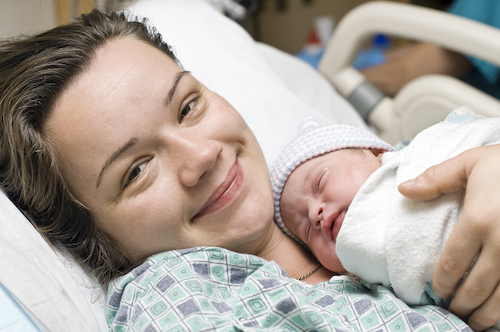Standards of maternity care in the Czech Republic are high, and both pre- and post-natal care are provided free of charge through the state’s healthcare system. Infant mortality rates are very low and continue to drop each year.Despite the excellent standard of state healthcare, some people still opt to take out private health insurance, including for maternity care. This can bring added peace of mind and means you have access to additional extras such as private midwives and more help around the home once your baby has arrived.
Prenatal Care In The Czech Republic
When you find out you are pregnant, if you plan to bring the baby to term then you should first of all register either with a hospital or with a specific doctor. The order in which you do this is important, since each choice will restrict your options for the other. For example, if you choose a doctor first, you will find that you can only deliver your baby at the hospitals they work in. On the other hand, if you choose your hospital first, then you will only be able to pick a doctor from the list of practitioners who work at that specific institution.
Another thing to consider is how important it is for you to be seen by the same doctor all the way through your pregnancy and during labour. Many people want to see the same specialist throughout the whole process, but this can be difficult to arrange if you are using the state health system. Only a limited number of doctors will guarantee service by them personally throughout your pregnancy and delivery, so if this is important to you, find out beforehand whether it is something your usual doctor offers, or whether you will have to go elsewhere. It is much easier to ensure that you have the same doctor all the way through if you go down the private health insurance route.

then taking out private health cover is a good idea
The state will cover all necessary pre-natal care, but what counts as ‘necessary’ in the Czech Republic might be different from what you would expect back home. Determining the gender the baby will be assigned at birth; 3D ultrasounds; and any services provided by a midwife will not be covered by your state health insurance and you will need to either pay for these yourself or take out a private package to cover them.
It is important to bear in mind the cultural differences, too. Some expat women report feeling that their doctors are dismissive or uncaring, because in Czech culture people speak to one another very directly and aim to get their points across as clearly as possible. This can be read by foreigners as being rude, especially when translating directly into their native languages.
When you visit the doctor, for example, you might be greeted with a “What’s wrong with you?” which could sound impolite to British ears, but is a normal opener for a medical conversation in the Czech Republic. Make sure you choose a doctor you feel comfortable with, even if this means you have to shop around. Some doctors speak English and certain facilities — particularly those covered by private insurance — specialise in medical care for expats, which might make you feel more at home.
Giving Birth In The Czech Republic
While it is legal to give birth at home in the Czech Republic, it is strongly discouraged by the Ministry of Health, and it is not legal for a company or a midwife to assist you in giving birth at home. There are no specialist birthing centres in the country either; you will need to give birth in the maternity wing of a hospital.

Although the overall standard of healthcare in the country is high, specialist care can vary widely between institutions, so it is worth visiting a number of different hospitals and seeing how their maternity wards are set up before you decide where you will go to give birth.
A study in Reproductive Health in 2018 demonstrated this wide variation and talked about some of the most common reasons for dissatisfaction. Like we mentioned in our article about standards of healthcare in the Czech Republic more generally, you will find that hospitals in major cities such as Prague and Brno will have much better standards of maternity care than those in rural areas.
Rural hospitals are more likely to use techniques that are outdated or are based on hearsay rather than evidence. Shaving the perineum has no known medical benefits, but is frequently done in some hospitals. Electronic monitoring of the baby is also not usually necessary unless there are extenuating medical circumstances, and it can cause stress for mother and child alike; nevertheless it is used extensively in some hospitals. Almost 50% of women in the Reproductive Health study reported that they had not given their consent for the vaginal examinations that were performed on them, and 75% said that their doctors did not always seek permission before artificially rupturing membranes.
These reasons are some of the main drivers behind people opting for private health insurance: this will give you much more control over who is with you in the birthing room, how well they already know you and your circumstances, and what procedures they will do while you are there.
Post-Natal Care In The Czech Republic
Women usually stay in hospital for a few days after giving birth, and there might be a nominal bed charge for each night. However, most of the care you receive during this period will be paid for by your state health cover.

Expats from other European nations might be surprised to find that there are not usually any provisions for home care once you have been discharged from hospital. Unlike in much of Western Europe, for example, you will not be visited every day by a midwife to check on the health of your baby and help you out with basic tasks. If you require post-natal care, you will have to pay for this yourself.
Would you like to share your experience of life abroad with other readers? Answer the questions here to be featured in an interview!

